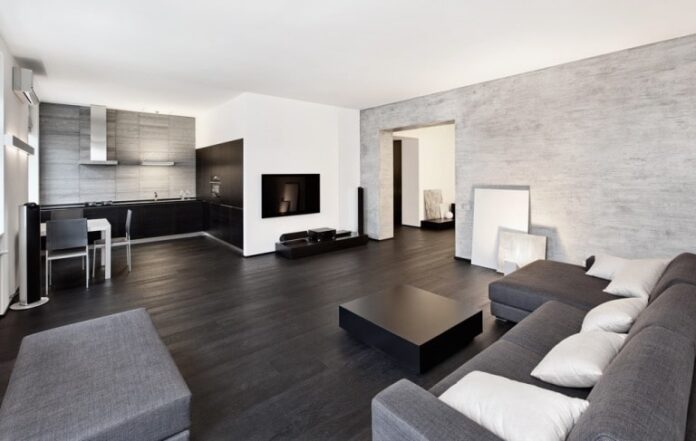Embracing the minimalist mindset can help you lead a calm, clutter-free life. Leaning into the minimalist aesthetic can aid your efforts to go truly zero-waste, too. You’ll produce far less trash when you are cognizant of the items coming into your house and can cut down on single-use items when you’re more intentional about your purchasing choices.
Adopting the minimalist approach can create a serene, low-stress environment for fun activities like journaling, yoga, and mindfulness meditation. It’s much easier to connect with your inner voice when you’re relaxing in a clean, calm environment, and you may find that the minimalist mindset helps you find fresh, creative inspiration when journaling.
Minimalism means far more than painting your walls white and regularly cleaning your space. Plenty of unique strategies—like one-in-one-out and zoning your living space—can help you create a living space that brings you a sense of pride and calm.
Mindful Consumption
Most people think of minimalism as a design choice. In reality, it’s far more than an aesthetic — it’s a lifestyle. This means you may want to rethink the way you spend your time and money. In particular, you should seriously consider embracing a more mindful, minimalistic approach to consumption, as this will keep your waste low and ensure your home remains clutter-free.
Get started by ditching single-use plastics and opting for reusable alternatives like thermoses and foldable cutlery in favor of coffee cups or plastic spoons. This may seem like a small change at first, but it is sure to make a big difference over time. You can further embrace mindful consumption for minimalists by:
- Joining “buy nothing” groups on Facebook;
- Properly recycling waste;
- Using refillable soap bottles;
- Thrifting new clothes, rather than buying new.
Embracing the minimalist, mindful approach doesn’t mean you have to give up the things you love, either. For example, if you’re something of an oenophile, you may want to consider joining a subscription service to source your wine.
A wine of the month club allows you to enjoy high-quality wines regularly without requiring you to store dozens of bottles at all times. A wine rack or cellar fits the minimalist aesthetic, too, and will reflect a mindful, highly organized approach to consumption. With so many subscriptions available, you’re sure to find something you enjoy.
Minimalist Hobbies
Minimalism can help you feel calm and collected in your home. This is a real boon if you’re used to stressing about piles of dirty laundry or stacks of dishes. The minimalist approach reduces the volume of “stuff” in your house and frees up time for activities that bring you joy. This means you’ll have time to take up stress-reducing hobbies, like:
- Yoga;
- Meditation and mindfulness;
- Journalling;
- Card and board games.
If you struggle to find time for stress-reducing hobbies, create a suitable schedule. For example, if you are a parent to school-age children, consider waking up before them to journal in peace before the day begins. Alternatively, if you have a busy professional life, you may want to keep the journal on your bedside table to encourage writing before bed. This will help you find a few moments to enjoy the peace of your minimalist home and will motivate you to keep up with cleaning.
Cutting Down on Possessions
Minimalism is all about cutting down on clutter and creating an organized, relaxing environment. However, giving up your prized possessions can be emotionally taxing if you’re in love with the art pieces you’ve collected or the antiques you picked up when you were younger. Rather than donating these sentimental pieces, consider creating a rotating display that helps you freshen up your space.
For example, when spring rolls around, consider packing up your heavy throws and rugs in favor of lighter-toned decor and minimalist flower wreaths that give your space a pop of color. You can store your out-of-season decor items in the attic or basement, where they are out of sight and don’t make your space feel cluttered.
If you find that you’ve outgrown a few decor pieces but aren’t quite ready to donate, consider creating a capsule library instead. This can be particularly beneficial if you have a few items of clothing that don’t currently suit your style but that you think will come back into fashion in a few years. You can create a capsule wardrobe by:
- Pulling together a small collection of functional clothes that will serve as the basis for everyday outfits;
- Keeping items based on their ability to work together in a single outfit;
- Safely storing your unused clothes in air-sealed storage to cut down on clutter;
- Keeping a few accessories close at hand to easily modify your outfit.
These basic choices will keep your space tidy and help you embrace minimalism at home. Cutting down the size of your wardrobe will make laundry that much easier, too, as you can complete a single load when you get through your week’s clothing. This can be a real relief if you find housework laborious and struggle to keep your laundry basket from overflowing.
Conclusion
Embracing minimalism through unique strategies — like creating a capsule wardrobe or joining “buy nothing” groups — can help sustain your motivation to live in a clean, clutter-free environment.
Simple changes, like taking a few minutes every day to practice mindfulness, can also help you get more from the minimalist lifestyle. Just be sure to invest in storage solutions that work, as keeping your favorite display items for the future can help you update your aesthetic as the seasons change.
